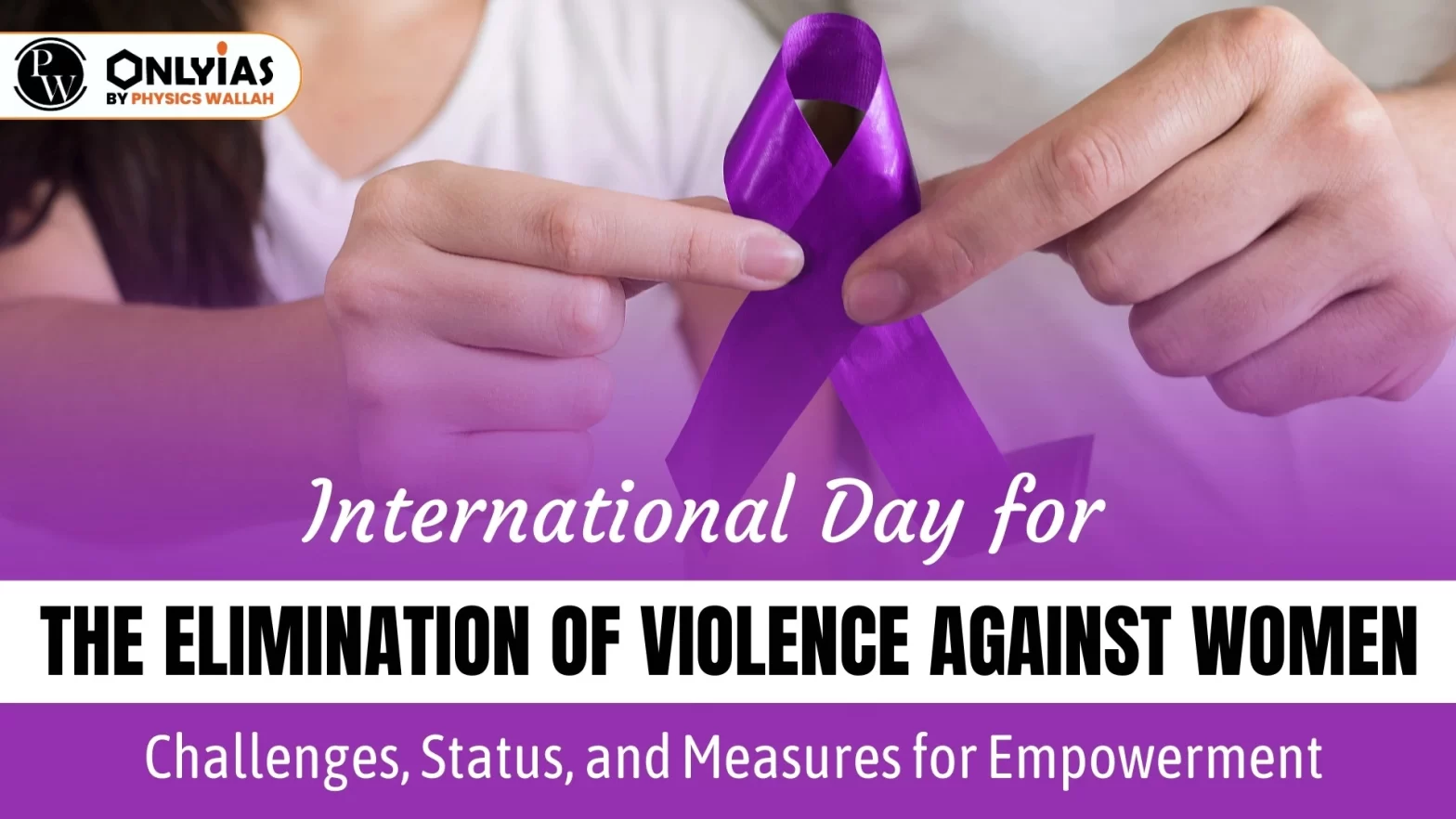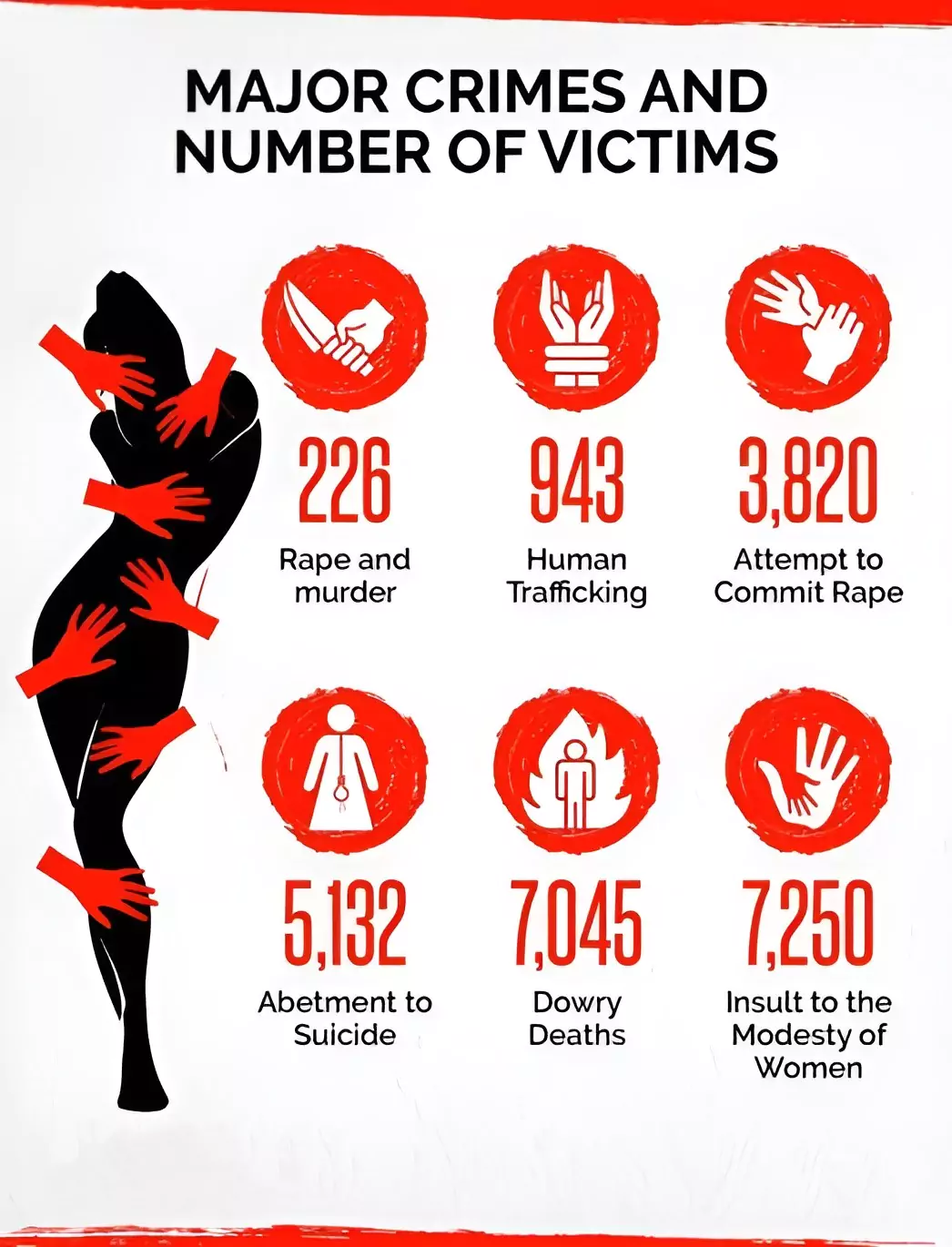Context: International Day for the Elimination of Violence against Women is celebrated on November 25 every year to create awareness.


| Must Read | |
| NCERT Notes For UPSC | UPSC Daily Current Affairs |
| UPSC Blogs | UPSC Daily Editorials |
| Daily Current Affairs Quiz | Daily Main Answer Writing |
| UPSC Mains Previous Year Papers | UPSC Test Series 2024 |
International Day for the Elimination of Violence against Women is celebrated on November 25 every year to create awareness.
The day aims to spread awareness on the violence faced by women all over the world and explore measures of ending it and providing essential support to the survivors of violence.
The theme for this year is “UNITE! Invest to prevent violence against women and girls' which emphasizes the need for funding prevention strategies to proactively stop gender-based violence”.
Majority of the cases of violence are “Cruelty by husband or his relatives’’ (31.8 percent) followed by “Assault on women with intent to outrage her modesty” (20.8 percent), kidnapping and abduction (17.6 percent), and rape (7.4 percent).
<div class="new-fform">
</div>